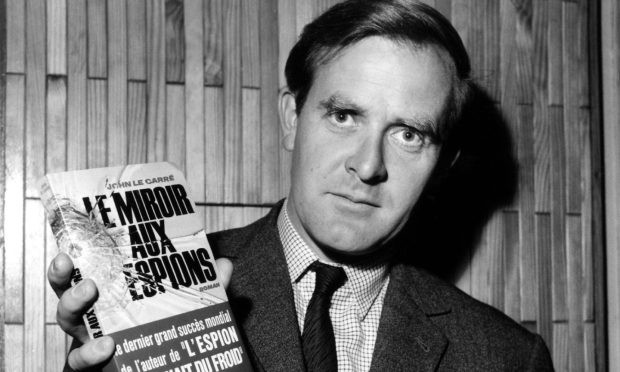
With his shabby raincoat, thick glasses and soft, patient demeanour, John le Carré character George Smiley was always one of the most unlikely heroes to pad through the pages of a spy thriller.
Yet whether in the novels, or in the classic BBC adaptation Tinker, Tailor, Soldier, Spy, when masterfully brought to the screen by Alec Guinness, Smiley’s shrewd restraint made him one of the most enduring fictional characters of the past century.
When the 89-year-old Le Carré died in 2020 it seemed as though Smiley’s case file would be closed for good. Yet, as is often with secret agents, not everything was as it seemed. The unassuming English gent has this week come back in from the Cold War – along with glowing reviews that would surely make him blush – in the novel Karla’s Choice.
The book was written by Nick Cornwall (writing as Nick Harkaway), Le Carré’s son, after a letter was left in his dad’s will asking that the family keep his literary legacy alive.
Taking on Smiley
“I had a list in my head of people who’d be really good at it. None of them was me,” says Nick. “I thought of all the reasons why I shouldn’t do it: it’s a huge challenge, it might be impossible. Smiley is part of this incredibly significant piece of 20th Century literature, and in many ways definitive of the Cold War.
“And suddenly, all of those things become the reason why you should do it. It’s a bit like if someone asks you to write a Star Wars movie. Your first thought isn’t, ‘no thanks’, it’s, ‘are you kidding? Of course.’
“However, the book is being released this week. The level of terror in my house is quite high at the moment…”
Taking on a character created by his dad was “absurd hubris”, according to Nick, despite him being a successful author in his own right. He is, in retrospect, the obvious choice.
After his dad died, he not only inherited a legacy of fictional spies, but even the chair in which his father sat writing his books.
“Here’s the thing that gives me the unfair advantage. I grew up listening to my dad read the Smiley novels across the kitchen table to my mum every morning as he wrote them,” says Nick, from his office in Hampstead, while leaning back in his dad’s chair.
“They’d talk about the books every morning of my life. I acquired language partly from an hour a day of George Smiley. When I came to write Karla’s Choice, I turned the mental dial and went looking for Smiley, and I didn’t have to turn it very far because it’s absolutely baked into my head.”
Last week was the conclusion of the latest series of the Golden Globe-winning Apple TV espionage series, Slow Horses. Based on the books by Mick Herron, the cynical agents in Slough House are the spiritual successors to Le Carré’s Circus. The main character, Jackson Lamb, is not only played by Gary Oldman (who was Smiley in the 2011 movie adaptation of Tinker, Tailor, Soldier, Spy), but one of his alternate identities is “David Cornwell” – John le Carré’s real name.
The Cold War
The murky, cynical world of spy fiction has endured well beyond the end of the Cold War. Although people in the 1960s lived under the threat of nuclear war, spy fiction helped readers understand it; that may be, according to Nick, why it’s still popular in today’s chaotic world.
“There’s been a big rise in conspiracy theories and we’re told the reason is because it’s actually oddly comforting; that out there, there is an author of your misfortunes and your troubles,” he says. “It’s not that the world is a complete mess and everything’s broken, but instead there’s somebody out there who is trying to get you.
“In an espionage drama there’s an enemy lurking outside in the darkness, but there’s also somebody with you who’s got a torch and is prepared to go out there and fix the problem.”
Wielding the torch once more in Karla’s Choice is Smiley, who le Carré called “the antidote” to that other iconic British secret agent, James Bond. While 007 was more likely to punch or sleep with the enemy, the short, poetry-reading Smiley would try to disarm them via quiet, sympathetic conversation over tea. Interrogations, he said, were “not interrogations at all, but communions between damaged souls”.
That thoughtfulness is more important than ever, according to Nick. “Particularly in 2024, that attitude is especially reassuring,” he adds. “I think the reason people go to Smiley is the sense that he’s aware you mustn’t actually become a monster in order to fight monsters.
“He recognises that you have to be decent while you do it. His compassion, and that sense of his awareness that everyone else, even the bad guy, is broken too, that matters.”
A new Smiley?
With a new novel comes the question of who would play George Smiley in a new adaptation. Guinness, Oldman and Denholm Elliott have all done so in the past but, last month, it was reported the Le Carré estate had knocked back Oldman’s return as Smiley.
So who would Nick like to see take the role?
“Let me just get to the question behind the question,” says Nick, with a spy-like acuity. “I don’t know what’s going on with Gary Oldman.
“I’m not the film producer, my brothers are in charge of that, and I actually don’t know what they would say if we’re in the hypothetical world.
“But, God, there are so many who could play that role so well. What about David Tennant? The only problem with David Tennant is we’ve always said that Smiley is this little dumpy guy, and that’s not Tennant. It doesn’t really matter how much you rough David Tennant up, he’s still David Tennant. He’d be amazing.
“What about pushing the boat out and doing something new? Let’s have Shohreh Aghdashloo (Iranian-American actress currently starring in Batman spin-off The Penguin).
“There’s so many people who could do it but, thank God actually, I’m not in control, so I don’t get to decide…”
Nick said the process of writing the book while grieving even helped form a kinship with his dad.
“Sitting in this space, on his chair, operating the levers of the Smiley machine, feeling that world, that’s the kind of unity that I get,” he adds.
“Writing the book was great, and then suddenly it’s very distressing. And then it’s great again.
“I can imagine a dialogue with my dad in my head, but that’s still quite raw for me. Sitting there, moving in his world, it feels like companionship with him again.”
Karla’s Choice by Nick Harkaway is published by Viking

Enjoy the convenience of having The Sunday Post delivered as a digital ePaper straight to your smartphone, tablet or computer.
Subscribe for only £5.49 a month and enjoy all the benefits of the printed paper as a digital replica.
Subscribe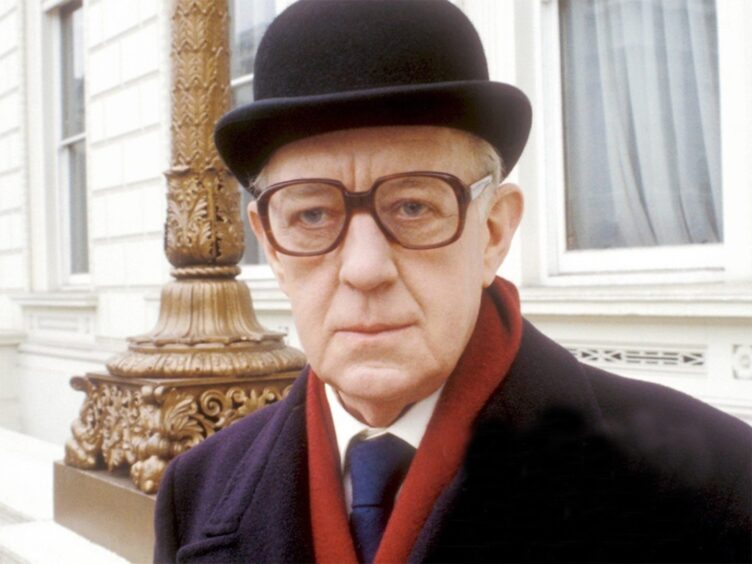
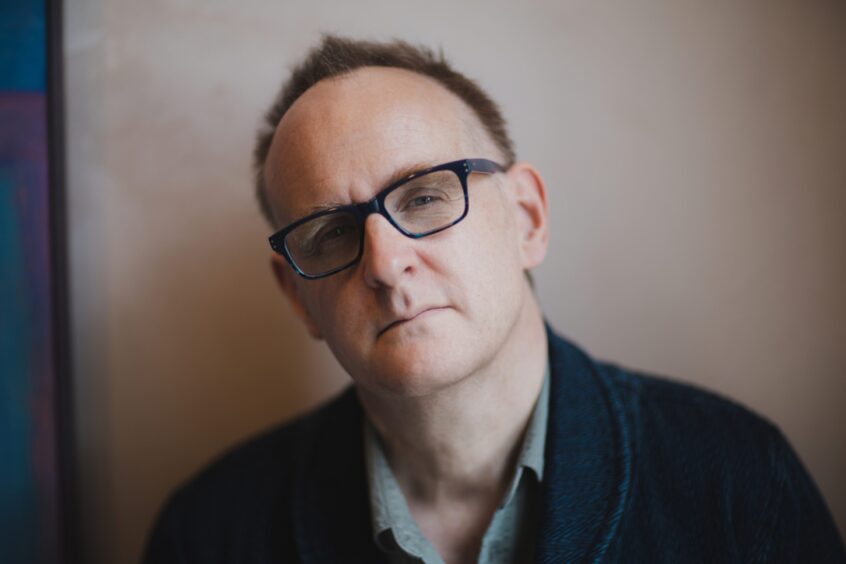 © Urszula Soltys
© Urszula Soltys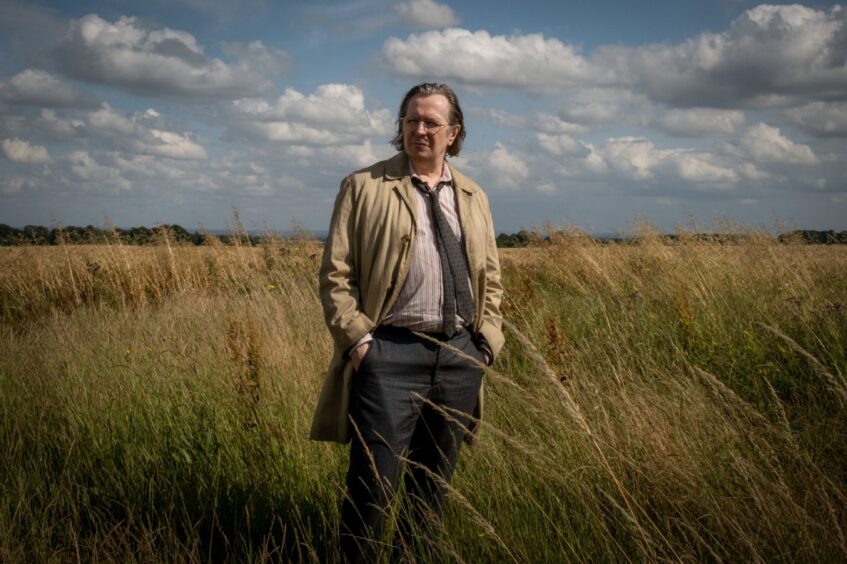 © Apple TV
© Apple TV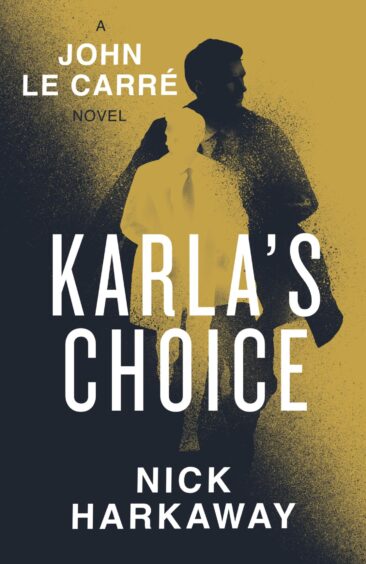
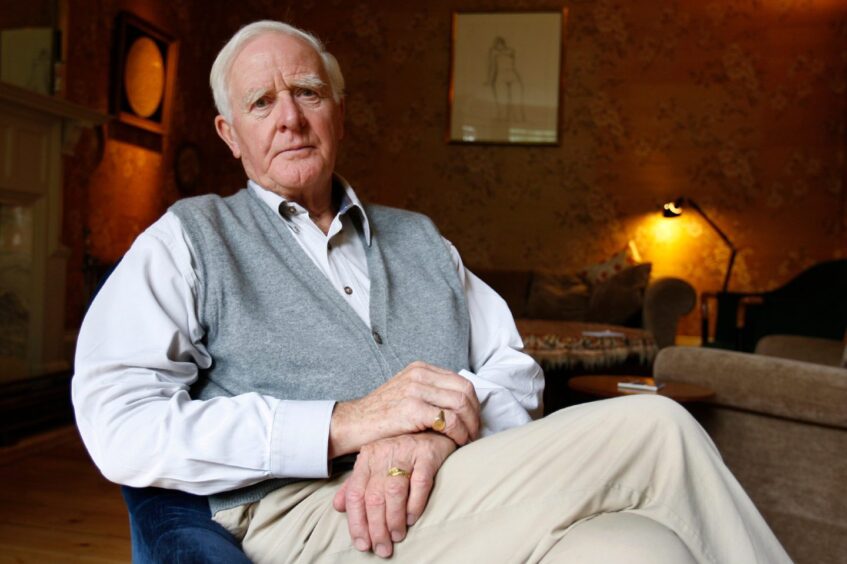 © Kirsty Wigglesworth/AP/Shutterstock
© Kirsty Wigglesworth/AP/Shutterstock